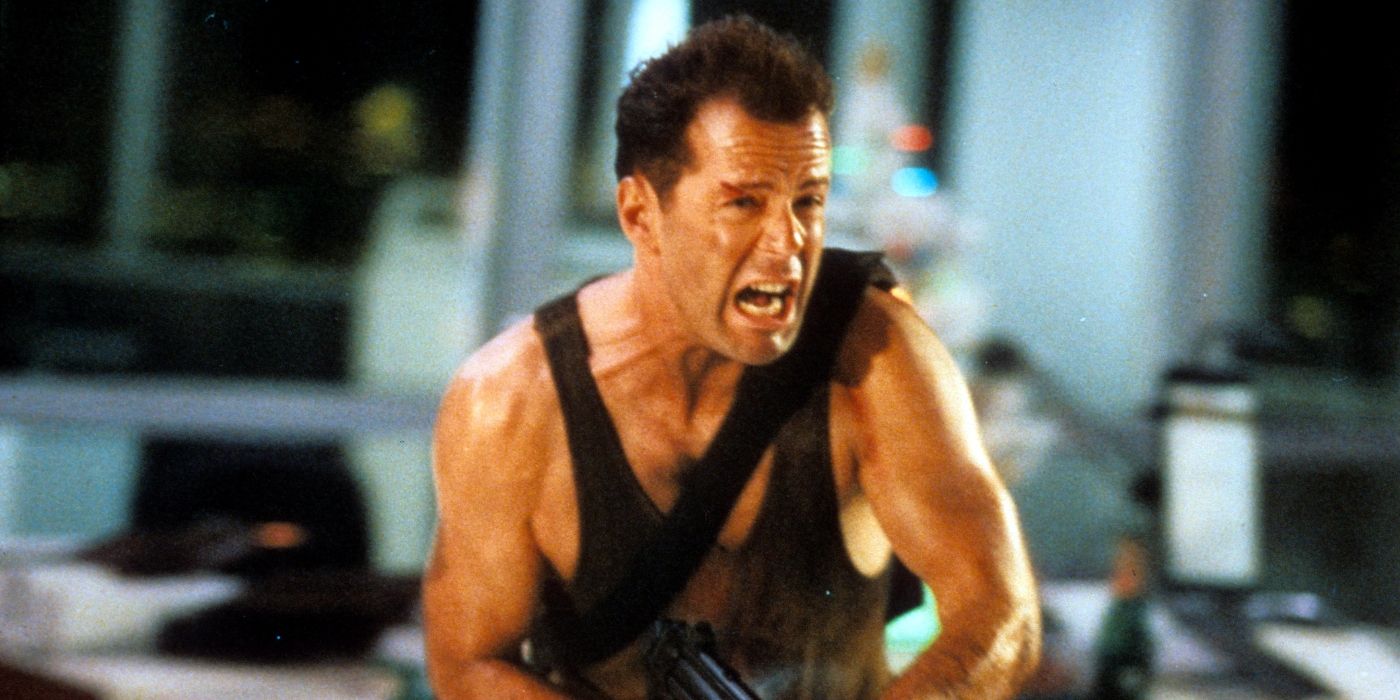
In a remarkable twist of fate, every prominent Hollywood actor has a pivotal role that significantly shapes their career. For Bruce Willis, this breakthrough part was the quick-witted cop, John McClane, in the film Die Hard. This role not only transformed his life but also had lasting effects. It’s intriguing to note that before he rose to fame, Willis was given the opportunity to join a different action series. Instead, he declined the offer for the character Martin Riggs in Lethal Weapon. The role ultimately went to Mel Gibson, and despite being made on a budget of just $15 million, the movie generated an astounding $120 million at the box office. Fortunately for Willis, he found his action success story a year later.
It’s hard to imagine any actor turning down such a role, but Bruce Willis wasn’t necessarily grasping at straws. He was already carving out a niche in bustling 1980s Hollywood with the comedy-drama series “Moonlighting.” His performance as a private detective was so captivating that he took home two prestigious awards: an Emmy for Outstanding Lead Actor in a Drama Series and a Golden Globe for Best Actor in a Television Series – Musical or Comedy. In a time when comedy shows were particularly popular, his future seemed secure. Therefore, Willis declined the role in “Lethal Weapon” for an unusual reason.
‘Lethal Weapon’ Nails the Buddy Cop Formula to a Tee
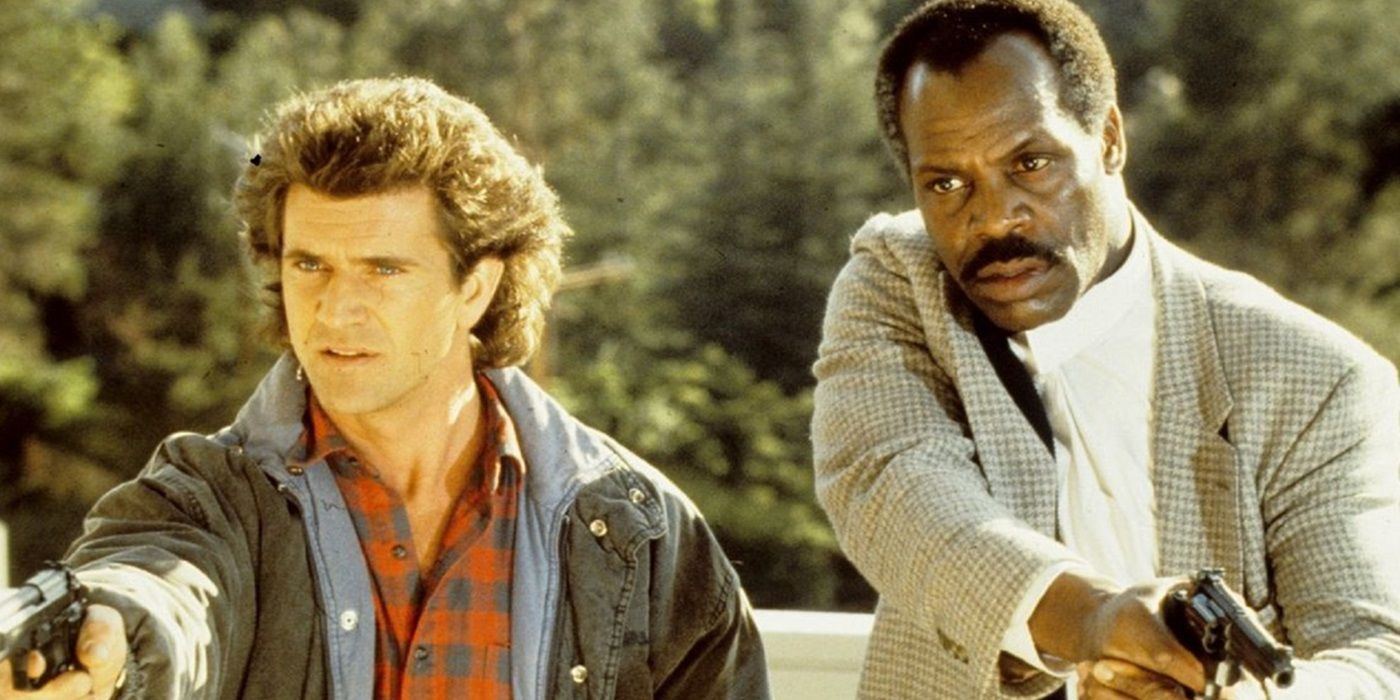
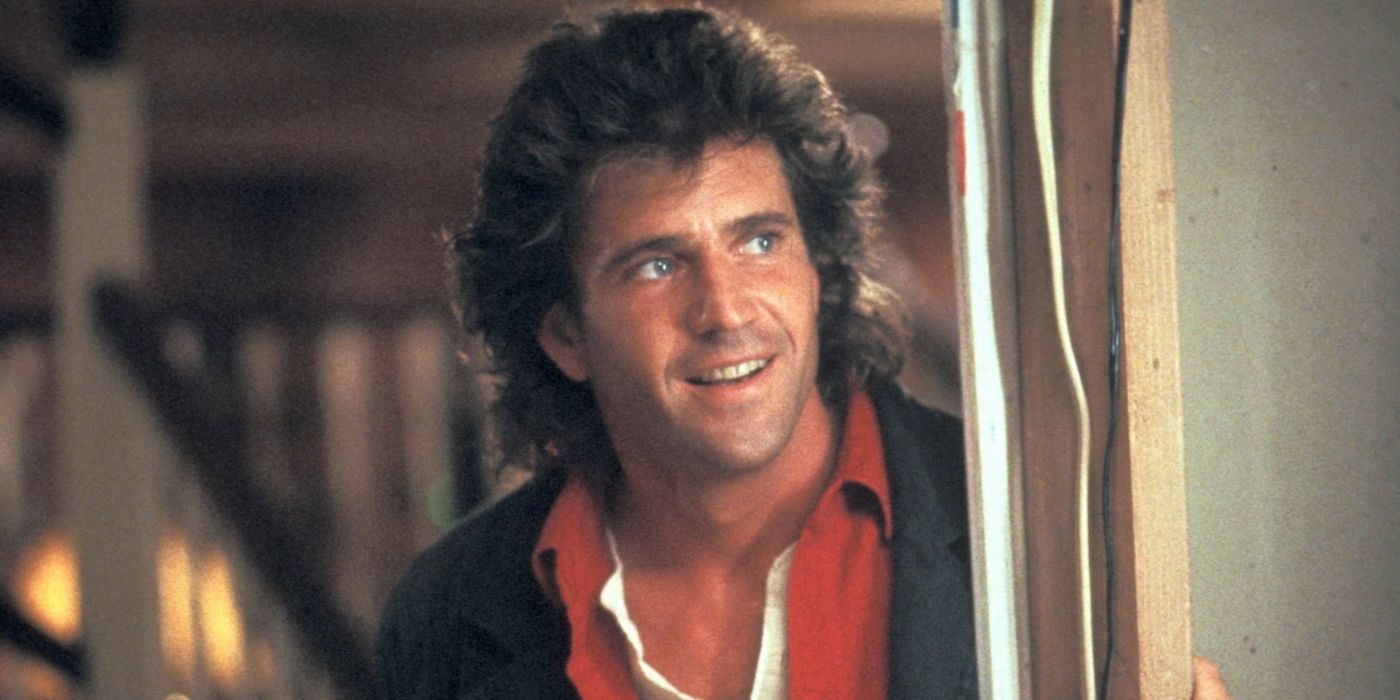
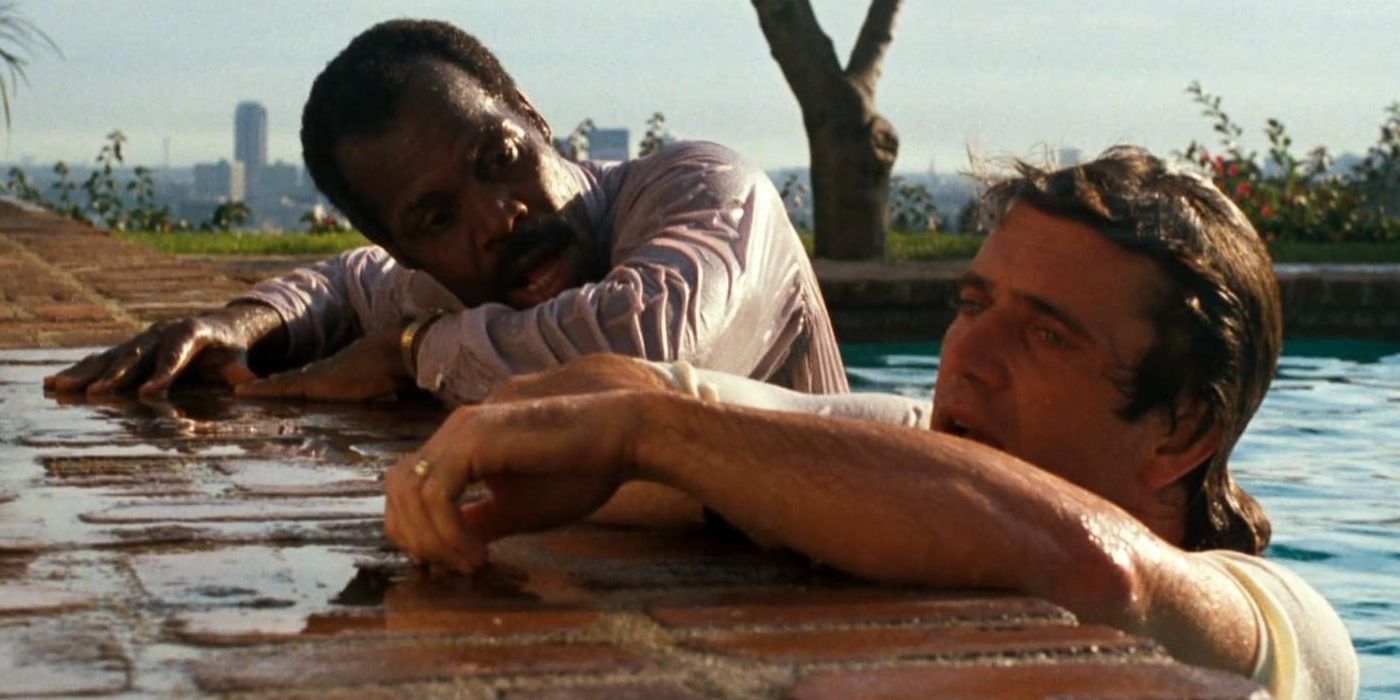
In the movie “Lethal Weapon,” you’ve got witty banter between cops and pulse-pounding action scenes that make it the perfect buddy cop flick. The story revolves around Roger Murtaugh, a veteran Homicide Sergeant from the LAPD, who’s thinking about retiring to spend more quality time with his loved ones. However, things take an unexpected turn when he gets paired up with the volatile Martin Riggs, a former Special Forces officer turned suicidal and erratic following the loss of his spouse.
Since Mutaurgh is a dedicated family man who has no connection with Riggs, he initially dislikes the young man. But as they work together more frequently, a profound mutual respect emerges between them. Despite Riggs’ irritating habits, Mutaurgh takes it upon himself to mentor him, aiming to influence him to rethink his actions and lead a righteous life. Before long, they form an unbeatable cop duo in the city. And what a brilliant choice for casting. With this dynamic duo setting the screen ablaze, it’s effortless for viewers to overlook the film’s other supporting characters.
In their hardest case yet, they grapple with allegations that Amanda Hunsaker, the daughter of Murtaugh’s former Vietnam War comrade, has taken her own life. As they delve deeper, they find themselves exposed to a realm of criminality, depravity, and drug-fueled oddities surrounding a clandestine group of ex-Special Forces personnel called “Shadow Company.” General Peter McAllister (Mitchell Ryan) oversees this organization, with the help of his ruthless enforcer, Mr. Joshua (Gary Busey). Will these two heroes take action against this sinister group?
Lethal Weapon can be described as a delightful blend of character-focused storytelling, humor, and heart-pounding action scenes. The complex emotional journey of Riggs adds depth to the film, while Murtaugh’s maturity, kindness, and stability provide a balanced contrast. It’s no wonder that the original movie led to three follow-ups. Later on, a TV adaptation was developed for Fox, with Clayne Crawford portraying Martin Riggs and Damon Wayans as Roger Murtaugh.
Bruce Willis and His Partner Had Concerns About the Screenplay
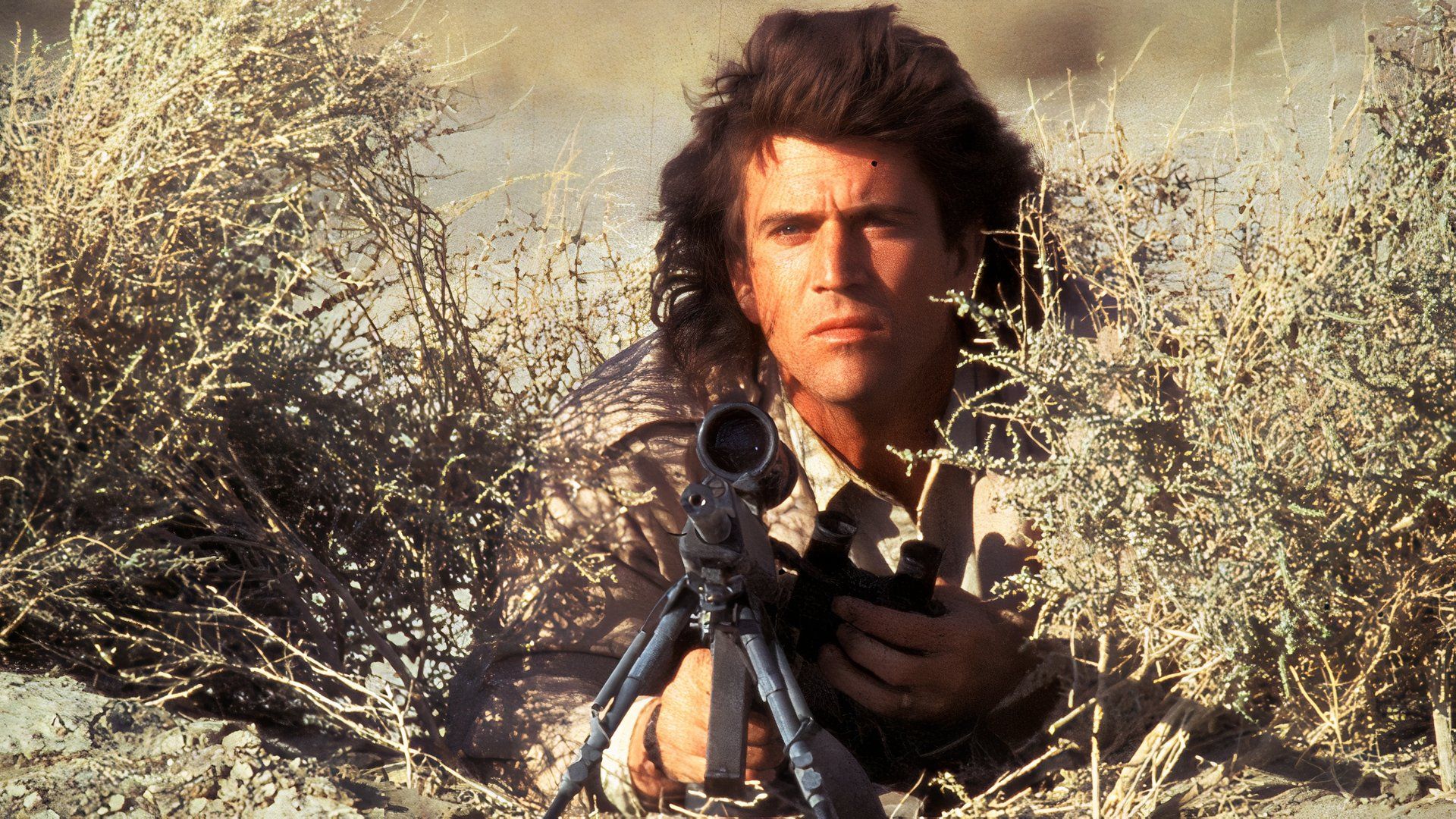
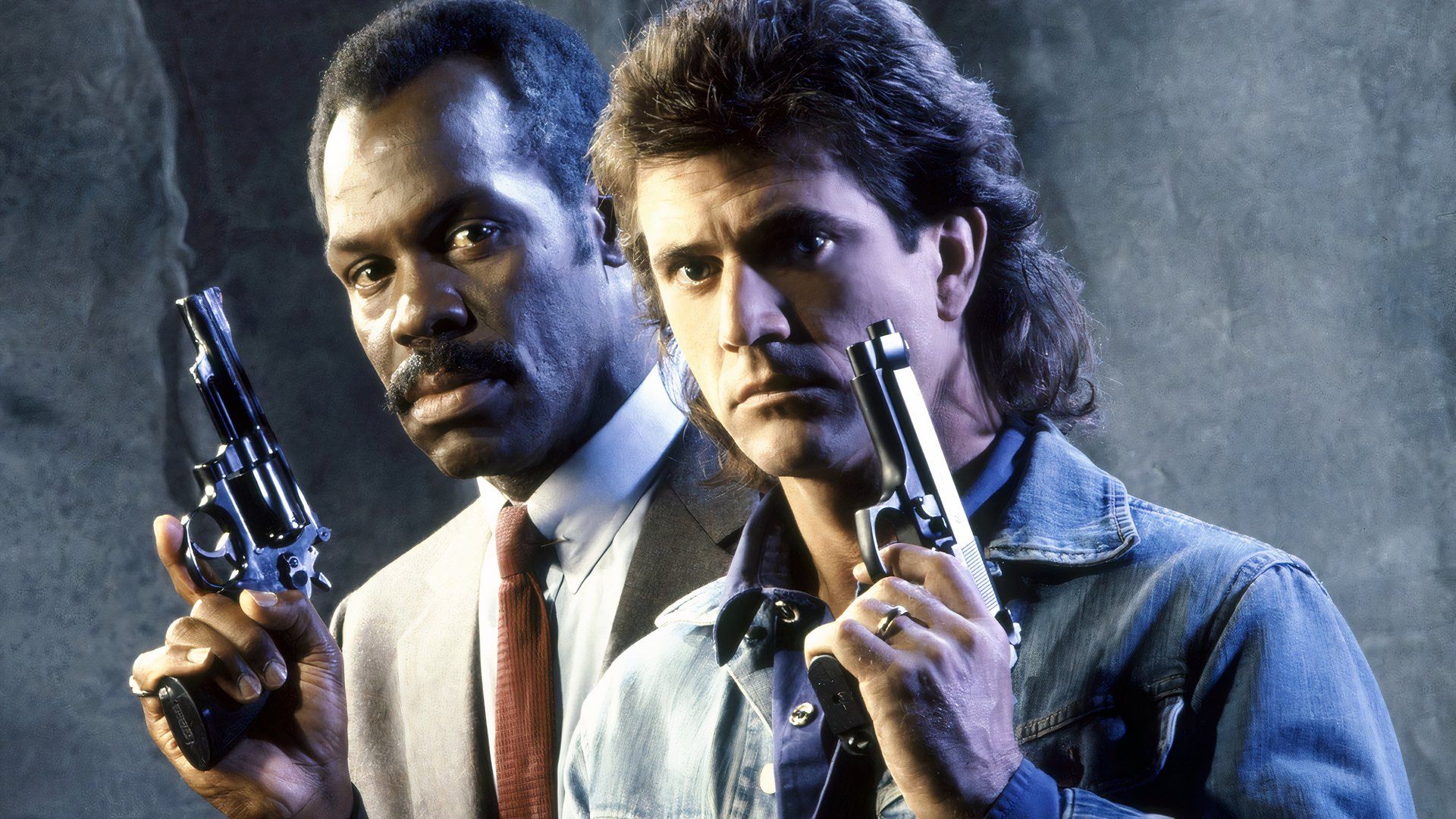
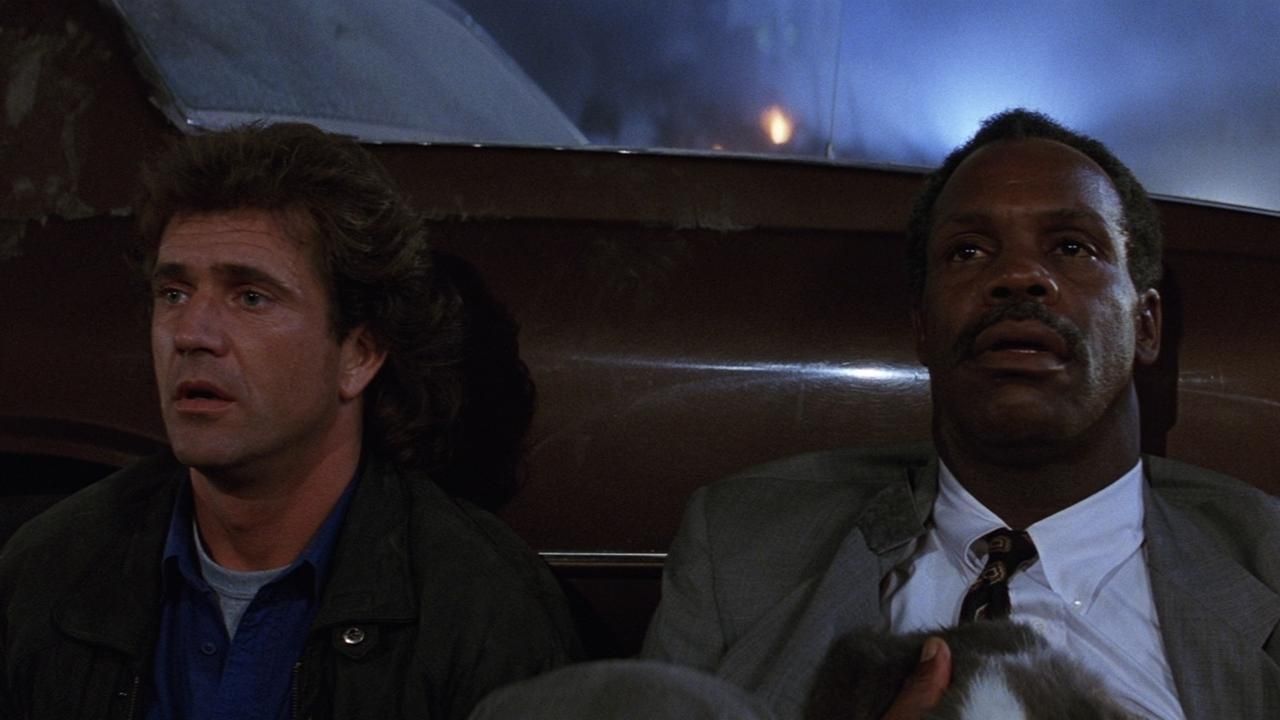
When the script for “Lethal Weapon” was presented to Bruce Willis, he held some reservations. Being known as a humorous TV personality with strong morals, the high level of violence depicted in the script made him uneasy. Nevertheless, it was primarily his girlfriend who expressed concerns, finding the violence to be excessive. “I recall around that time, the ‘Lethal Weapon’ script appeared before me, and my girlfriend read it and said it was excessively violent,” Willis shared with Entertainment Weekly.
The hypocritical stance against violence portrayed by Willis in later became the target of satire in the 1993 film Loaded Weapon. In a scene reminiscent of the first Lethal Weapon movie, an actor emerges from the debris of his own trailer home, which had been destroyed by a villain who had mistakenly targeted it. Interestingly, this actor was dressed in the same vest as John McClane from Die Hard. During a brief 30-second sequence, he brandished a makeshift white flag and exclaimed, “What are you doing here?” This scene served as evidence that his stance against violence was nothing more than an act.
Over time, Bruce Willis’ filmography has included projects that are significantly more graphic or unsettling than his iconic role in “Lethal Weapon”. Movies like “12 Monkeys”, where a character consumes a live spider, and “Sin City”, filled with brutal murders (day or night), exemplify this. It’s possible that Demi Moore, his partner since 1987 (the year they married, coincidentally the same as when “Sin City” was released), may have been the one to shy away from such gruesome content initially. However, it seems both of them have ventured into more violent material as the years passed. “The Substance” is one of Demi Moore’s recent examples in this regard. It appears that attitudes towards violence in Hollywood can shift rather rapidly.
It turns out that Willis wasn’t the only one who declined the role in “Lethal Weapon”. Richard Donner, the director, had initially wanted to cast an actor he had worked with on the Superman movies. However, scheduling conflicts prevented a reunion. Michael Biehn was also approached for the part of Riggs as Donner admired his performance in The Terminator, but he couldn’t accept due to commitments to Aliens. A number of other actors, such as Pierce Brosnan, Sylvester Stallone, Christopher Lambert, Stephen Lang, Ron Perlman, Michael Douglas, Michael Nouri, Patrick Swayze, Jeff Goldblum, and Kurt Russell, were also in the running for the role.
Bruce Willis Would Have Been Perfect for ‘Lethal Weapon’
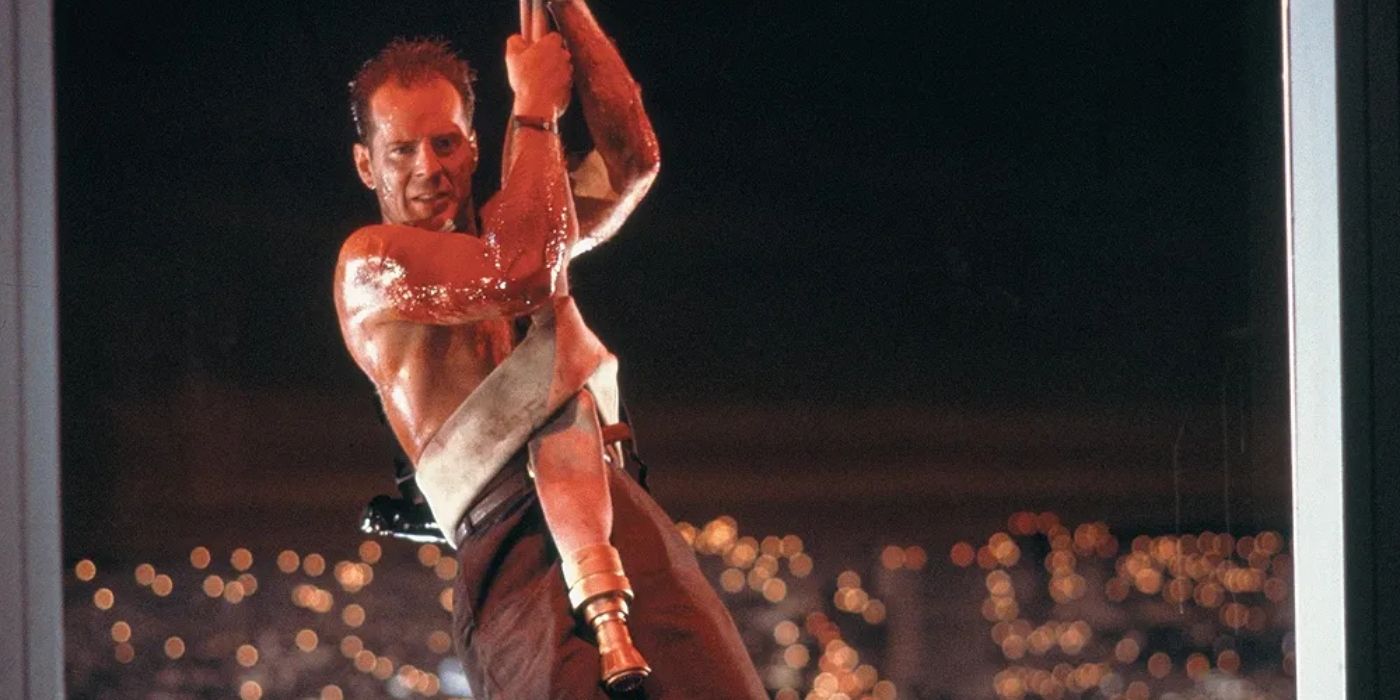
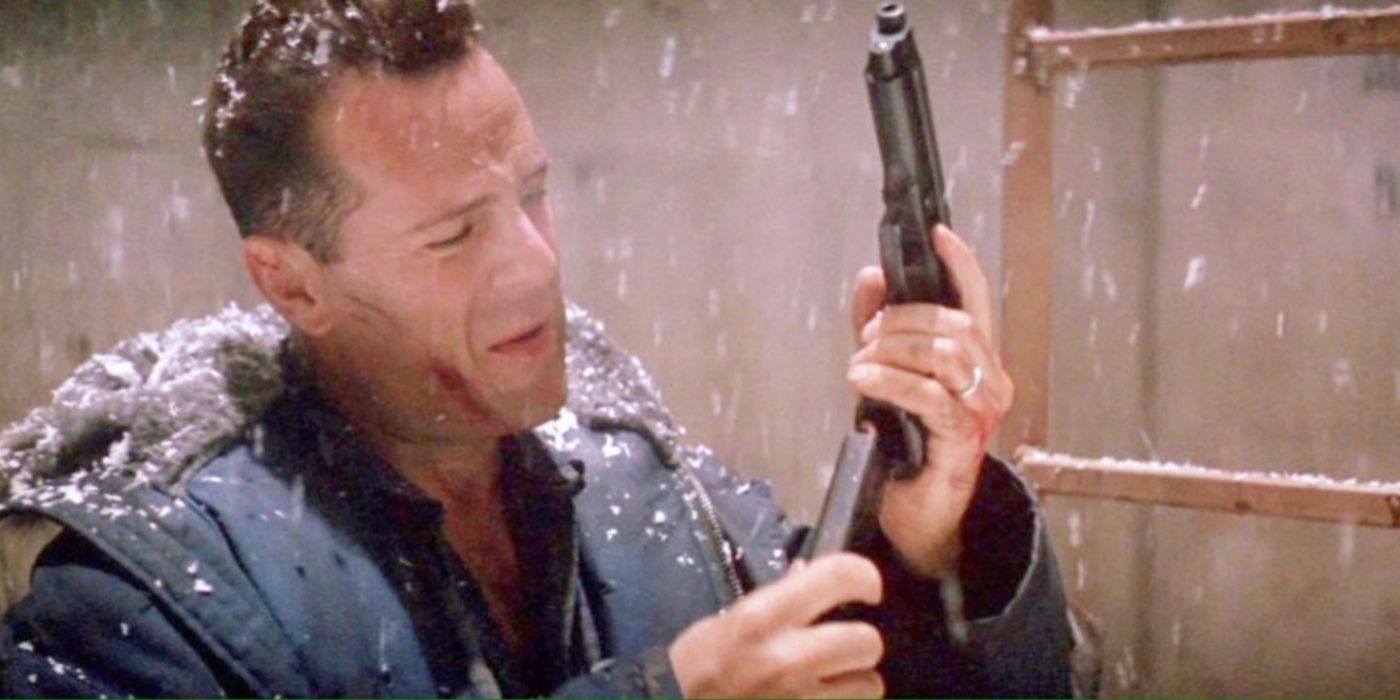
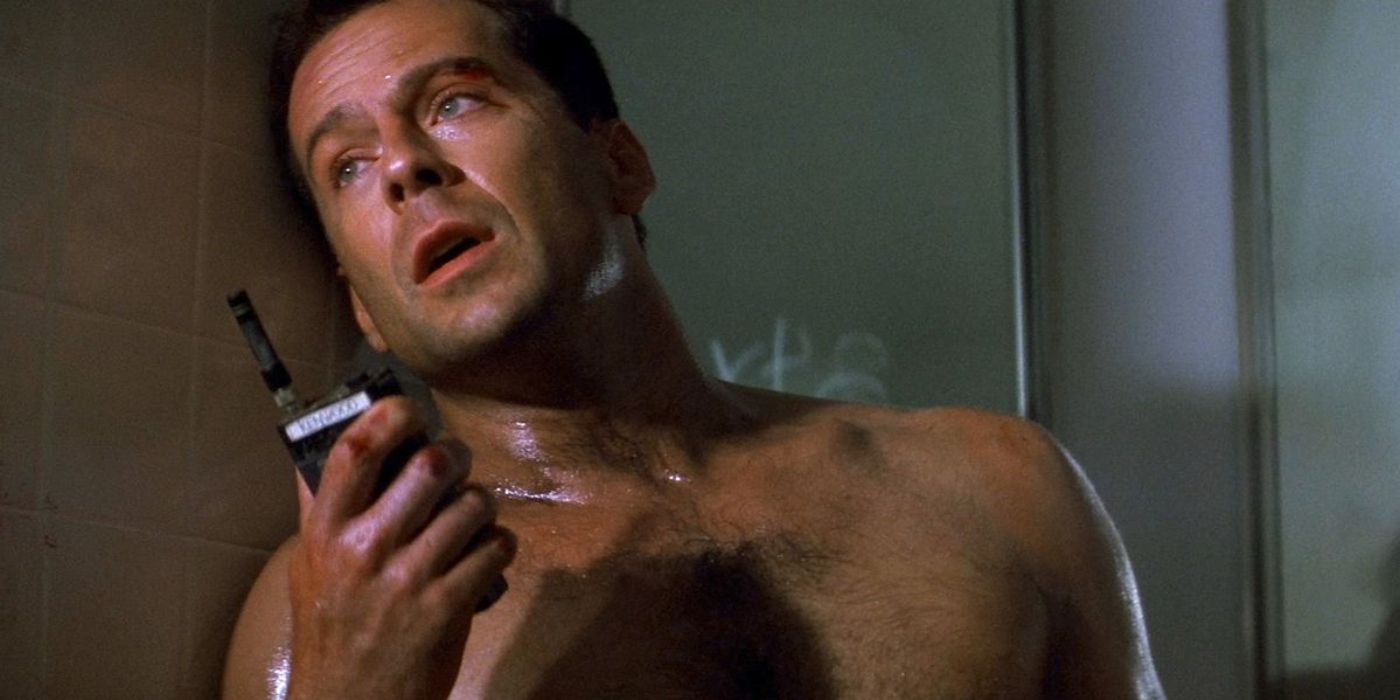
A somewhat chatty but undeniably captivating series, Lethal Weapon, offers a less authentic depiction of a police officer’s life – a vibrant universe filled with eccentric villains that stands in stark contrast to the harsh, unglamorous truth of the real world. Despite its exaggeration, it manages to keep audiences engaged, and Bruce Willis may have initially been hesitant about playing Martin Riggs, but he should have seized the opportunity.
In terms of charisma and raw talent, I couldn’t help but draw parallels between the enigmatic character and the legendary John McClane, played by Bruce Willis. Given his exceptional performance in buddy movies like “Die Hard with a Vengeance” (starring Samuel L. Jackson) and “Live Free or Die Hard” (paired with Justin Long), it’s safe to say that he seldom disappoints on the big screen.
Similar to McClane, Riggs is a prominent officer within his department, belonging to one of the most powerful law enforcement agencies in the United States. Unlike McClane, he hails from the NYPD rather than the LAPD. Both characters are far from idealized figures, often making morally dubious decisions, yet their indomitable spirit captivates us entirely, earning our undivided admiration.
In simpler terms, both characters experience tension related to love. For McClane, his ex-wife’s charm has left him pining like a lovelorn puppy. On the other hand, Riggs struggles with moving on from his wife’s passing. Interestingly, apart from their daredevil antics, they both frequently employ humor in their conversations. A famous example from the movie Lethal Weapon is when one shepherd asks another, “What do we say to the shepherd who’s lost his sheep? Let’s get the flock out of here.
Primarily, Lethal Weapon significantly contributed to Willis’ career in a manner similar to Die Hard. Today, neither series can be categorically deemed as superior; they have both maintained their relevance throughout the years and each has produced five installments (including the Lethal Weapon television adaptation).
Reflecting on the turn of events, it’s clear that Bruce Willis’ decision to step away from Lethal Weapon proved beneficial for all parties involved. Instead, he graced us with an unforgettable Christmas action classic, while Mel Gibson immersed himself brilliantly in the role of Martin Riggs. It’s evident that this iconic franchise significantly boosted Gibson’s resume, making it a crucial stepping stone in his career. Consequently, it’s safe to say that he should be the most appreciative.
Read More
- Clash Royale Best Boss Bandit Champion decks
- Clash Royale December 2025: Events, Challenges, Tournaments, and Rewards
- Ireland, Spain and more countries withdraw from Eurovision Song Contest 2026
- Clash Royale Witch Evolution best decks guide
- Mobile Legends December 2025 Leaks: Upcoming new skins, heroes, events and more
- Clash Royale Furnace Evolution best decks guide
- Mobile Legends X SpongeBob Collab Skins: All MLBB skins, prices and availability
- ‘The Abandons’ tries to mine new ground, but treads old western territory instead
- Football Manager 26 marks a historic FIFA partnership ahead of its November launch
- The Most Underrated ’90s Game Has the Best Gameplay in Video Game History
2025-04-30 05:03